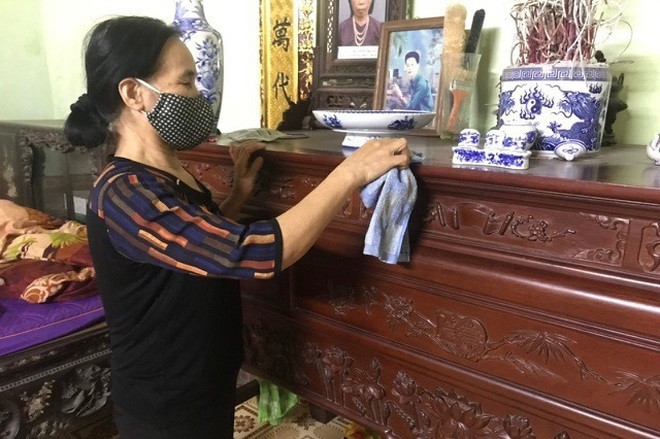Since the outbreak of Covid-19, domestic workers have become much more vulnerable to job loss than other workers. The wages of domestic workers in Vietnam have dropped by 26.2%.
This is information about the difficulties of domestic workers caused by Covid-19, just announced by the International Labor Organization (ILO) on the occasion of International Day of Domestic Workers (June 16).
The biggest risk of job loss
Information from the ILO in Vietnam shows that, compared to the fourth quarter of 2019, the rate of domestic workers decreased by 17% in the second quarter of 2020, while the unemployment rate of other hired workers in the same period was only 6.1%.
While some domestic workers have lost their jobs, others have also seen their working hours reduced. In the second quarter of 2020, the working hours of domestic workers in Vietnam decreased by 24.7% compared to the fourth quarter of 2019.

Employment and wages of domestic workers have dropped significantly due to Covid-19
Both of these situations have led to a significant drop in total wages received. Wages received by domestic workers in Vietnam have dropped by 26.2%.
The ILO survey also found that before the Covid-19 outbreak, 19% of domestic workers in Vietnam worked through service providers. At the same time, over the past decade, the number of domestic workers migrating to work abroad has continuously increased.
The Big Challenge: Compliance
ILO's assessment shows that, among Southeast Asian countries, Vietnam is the only country that has regulations requiring domestic workers to receive a minimum wage at least equal to the minimum wage for other workers.
In terms of institution building, Vietnam is one of the few countries in the region that brings domestic workers under the scope of labor law.
The 2019 Labor Code and Decree No. 145/2000/ND-CP stipulate that family workers must have a written labor contract that meets certain standards, including limits on working hours and rest hours.
It is expected that by 2026, Vietnam will ratify the ILO Domestic Workers Convention (Convention No. 189).
The ILO has recognized that Vietnam has made significant progress, including bringing domestic workers under the protection of labor laws.
Despite making significant progress in the region by bringing domestic workers under the purview of labor laws, the challenge Vietnam currently faces is compliance with the law.
“The challenge now is how to increase compliance with the law and close the gap between the protections provided in the law and the actual experiences of domestic workers,” said Dr. Chang-Hee Lee, ILO Vietnam Director.
More than 61% of domestic workers are not covered by national labor laws. According to the ILO, in the Asia-Pacific region, the lack of coverage under national labour laws and persistently high levels of informality continue to have a serious impact on the working conditions of domestic workers. Results from the review report 10 years since the adoption of the Domestic Workers Convention 2011 show that: The majority of domestic workers in the Asia-Pacific region (61.5%) are completely outside the scope of national labor laws, while 84.3% of them still work in informal jobs. Meanwhile, domestic workers are also being hit hard by the Covid-19 pandemic. According to the ILO, the Covid-10 pandemic has had a major impact on domestic workers in the Asia-Pacific region due to high levels of informality and lack of legal protections leading to job loss. They are estimated to be 2-3 times more likely to lose their jobs than other workers. |
According to Dan Tri